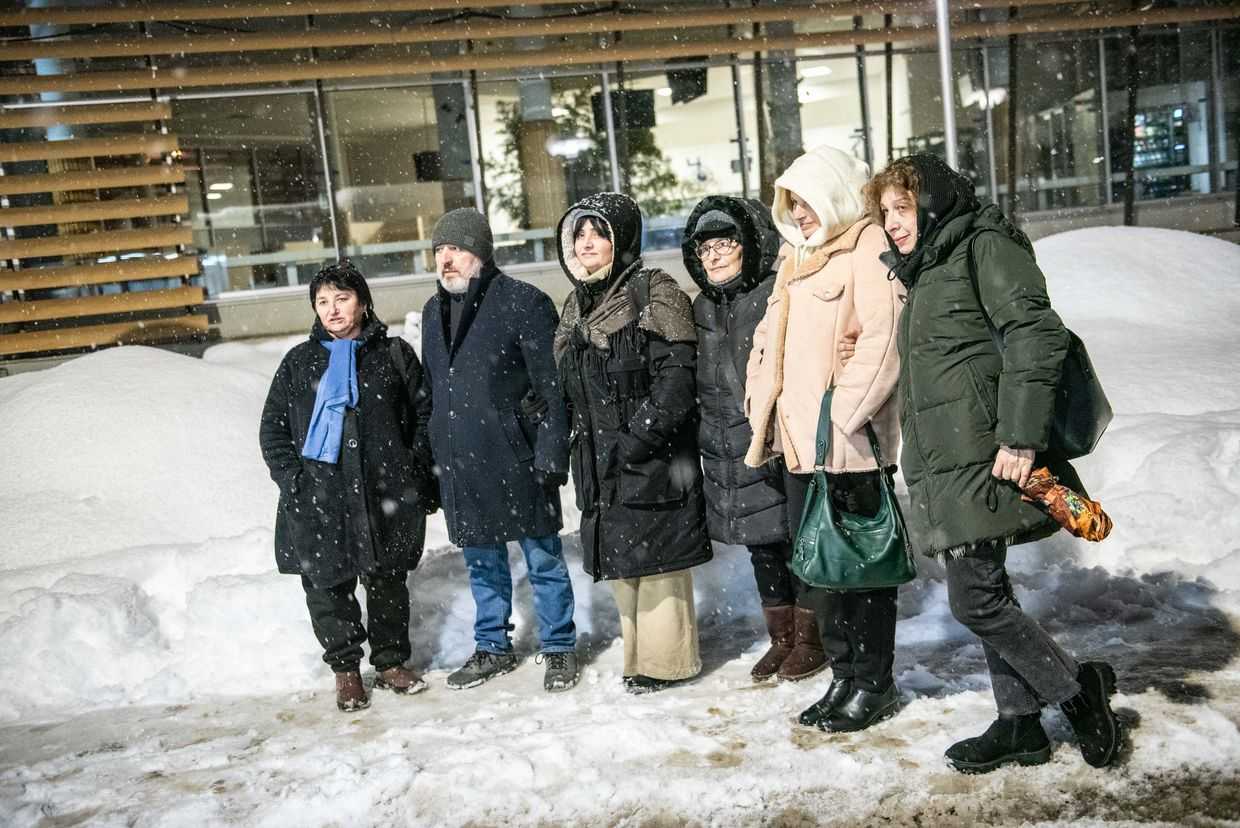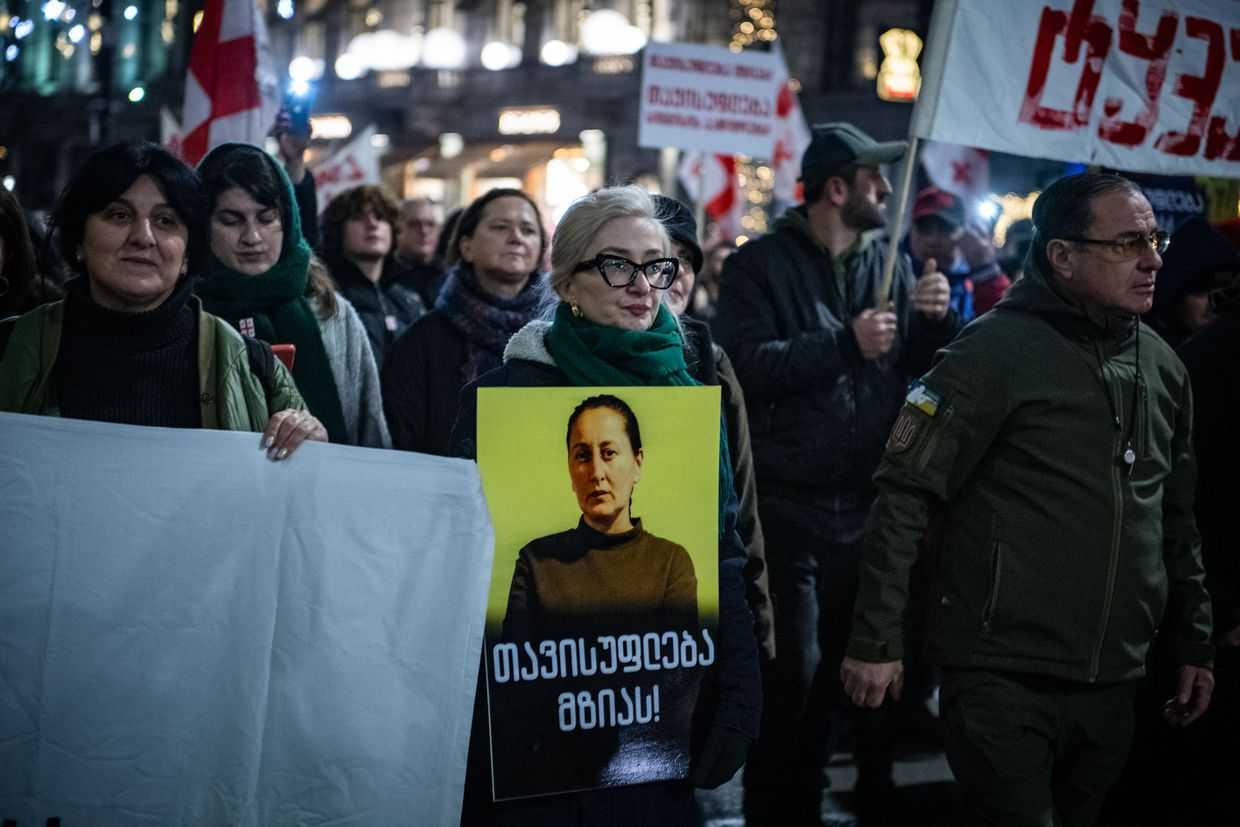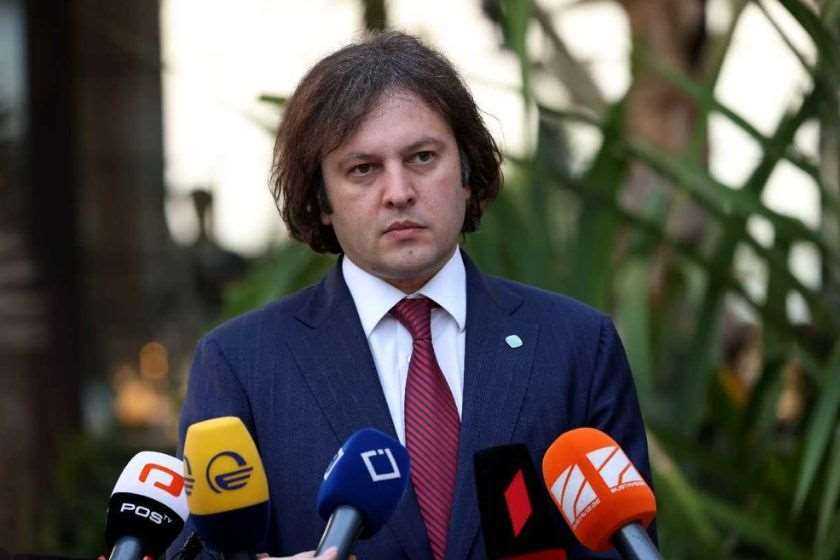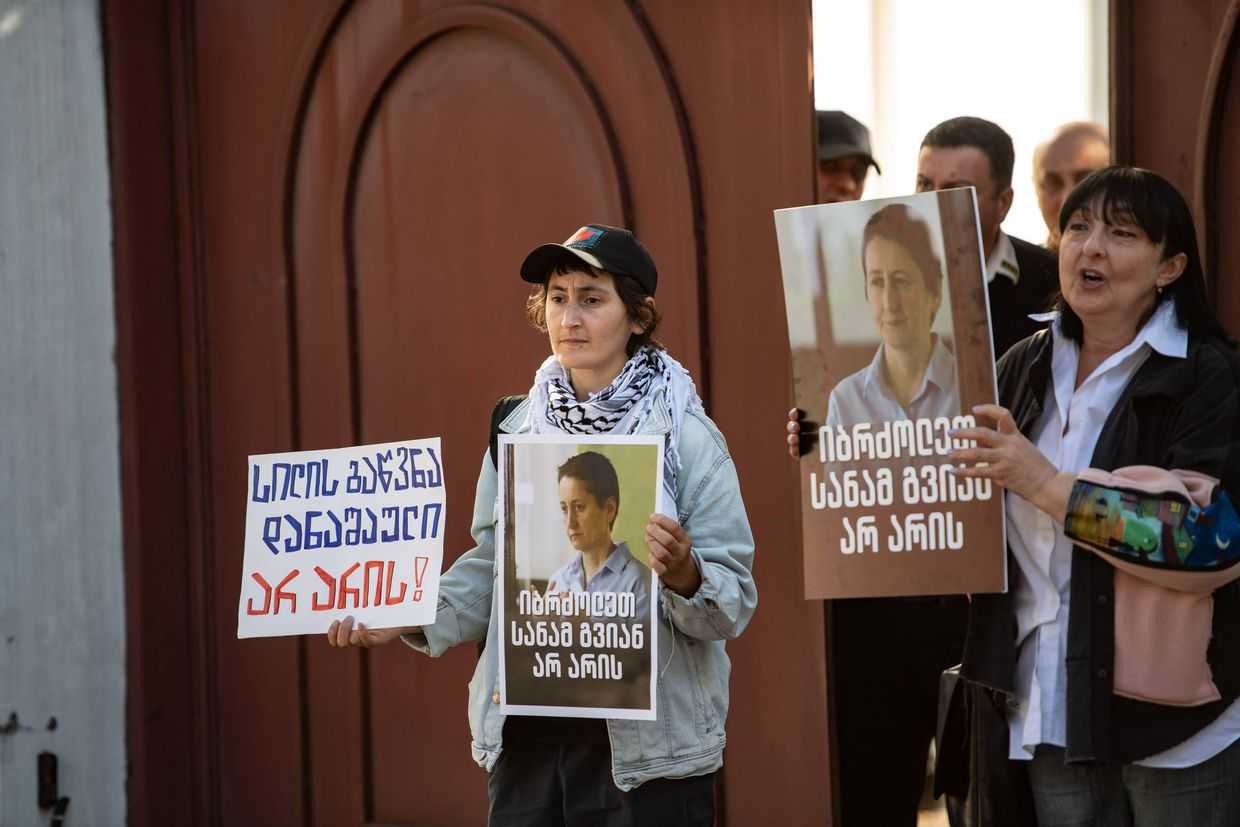Opinion | Mzia Amaghlobeli is a political prisoner
The authorities in Georgia go to extreme lengths to pursue opponents of the government, while giving tacit approval to those who attack such opponents.

It’s been more than three weeks since Mzia Amaghlobeli — the founder of Batumelebi and Netgazeti, two of Georgia’s most well regarded online media outlets — was arrested. She has been on hunger strike ever since.
Amaghlobeli has been a journalist for 26 years. In 2001, she co-founded Batumelebi, and has been leading it, and later Netgazeti, ever since.
During a protest on 11–12 January, a friend of Amaghlobeli’s was arrested for putting a sticker on the ground. Amaghlobeli also came to the protest and put a sticker on a wall, for which she was arrested. She was released a couple of hours later.
Two of her relatives came to see her following her release, and were both arrested in her presence.
According to her lawyers, Amaghlobeli was later insulted and threatened by Batumi’s Chief of Police, Irakli Dgebuadze, after which she slapped him and was arrested once again. Her lawyers also say Dgebuadze spat in her face and insulted her again during her arrest.
For several hours after her arrest, her lawyers say she was denied access to a bathroom and was not given water.
She now faces up to seven years in prison for attacking a police officer.
Later, on 14 January, Batumi City Court Judge Nino Sakhelashvili remanded Amaghlobeli to two months of pre-trial detention, citing a risk she would go into hiding. When her lawyers appealed this decision, the Court of Appeals declined to consider her case.
Using pretrial detention as a preventive measure before trial is the strictest measure possible, used when there is a danger the suspect could destroy evidence, hide, or pressure witnesses. None of these were issues in Amaghlobeli’s case.
Scheduling her next hearing for March after she was arrested in mid-January only reaffirms suspicion that the authorities wanted to keep her locked up.
The article that she is being charged with foresees punishment of up to seven years in jail for ‘attacking a police officer’. To qualify a slap as such, lawyers argue, is harsh.
Batumelebi and RFE/RL independently studied several decisions of the Supreme Court of Georgia related to attacks on police officers, including in the recent past, and found numerous cases where the courts used lighter qualifications for similar cases. In one similar case from 2019, a person was fined ₾2,800 ($1,000) for slapping a police officer.
Double standards
Amaghlobeli’s case perfectly illustrates how at every level — from the police, to the Prosecutor’s Office, and even to the courts — the authorities in Georgia go to extreme lengths to pursue opponents of the government, while giving tacit approval to those who attack such opponents.
You do not need to go far back, but simply to the November–December protests to see this in action. While Amaghlobeli sits in jail, those who committed brutal attacks on her media colleagues remain free.
We’ve seen Guram Rogava of Formula and Mariam Gaprindashvili, Maka Chikhladze, and Giorgi Shetsiruli of TV Pirveli all attacked live on TV while they were covering the dispersal of pro-European protests on Rustaveli Avenue. All of those listed above received serious injuries — some of them, according to doctors, were life threatening. Rogava has had to wear a cast for months, and is still unable to work. While investigations have been formally launched in these cases, no one was arrested, no one was held accountable.
No one has been held accountable for the systematic torture of dozens of protesters either.
The reason for this is likely a simple one: the Georgian government needs loyal people in law enforcement, and as such, they need to feel they have impunity. If even one person gets arrested or punished in some way, this could create a risk of serious cracks in the system, and Georgian Dream, now more than ever, does not need this.
What it does need, however, is exemplary punishments to send a message that you may be next. There are over 50 people in prison facing criminal charges who were arrested during the spring and November–December protests. And now there is Amaghlobeli, head of two independent professional media outlets that Georgian Dream is not a fan of.
When we are talking about double standards, this is not a new situation, however. In 2021, former Georgian Dream member and judoka Zurab Zviadauri was released by the court on bail after being charged with premeditated murder.
A vendetta against the free press
Georgian Dreamt has a history of singling out different media outlets for specific reasons — even OC Media has had such experience in the past.
Over the course of 2024, there were numerous incidents involving Batumlebi which displeased officials.
The first was in April 2024, when Georgian Dream was in the process of touring the regions to talk about their controversial new legislation. During their meetings, they tried to keep the environment comfortable, and did their best to avoid being challenged by anyone. However, at one such meeting in Batumi, the Editor-in-Chief of Batumlebi, Eter Turadze, challenged Parliamentary Speaker Shalva Papuashvili about the foreign agent law. Her speech went viral.
In another incident, Batumlebi published an investigation shortly before the October parliamentary elections, which became an important piece of evidence for election rigging, particularly in regards to Georgian Dream using the personal data of voters.
In addition, Batumlebi actively covered the protests in Batumi which broke out following Prime Minister Irakli Kobakhidze’s statement on 28 November that the government would be halting Georgia’s EU membership bid.
During the protests on 16 December, police threatened Turadze with arrest while she was covering the protests.
On 12 January, police arrested Batumlebi camera operator Guram Murvanidze while he was covering the protests. According to Murvanidze and his lawyers, the arrest was a direct order from Dgebuadze after the latter learned who Murvanidze was working for. Murvanidze spent eight days in detention.
In the past two years, media has had to face challenges coming from many directions: tightened legislation framework, including but not limited to the foreign agent law; physical security, as not only are attacks on journalists not investigated, but lately, police officers have become the attackers; disinformation and a hate campaign against media; and now legal persecution. This week, Georgian Dream announced a new package of amendments that will specifically target media by imposing ‘ethical standards’ on us and banning ‘foreign funding for media’.
It is clear Amaghlobeli’s case is part of the increased pressure and hostile environment that media faces in Georgia.
Early December, my name appeared on the police wanted list. Back then I thought it had two possible explanations: to send a warning to the media that we’d be next, or to have someone from the media punished as an example, in case I would be arrested. While I remain free, Amaghlobeli’s criminal charges serve this latter purpose. It’s a message to journalists that our work will not protect us and that we could be next. And unfortunately, the court system is the last institution you can count on in Georgia for finding justice.
For me one of the most alarming cases took place on 2 June 2022, when police violently arrested peaceful protesters for holding a blank piece of paper. Their trials were biased, and the police were never punished for abusing their power.
Since then, I’ve attended numerous trials involving similar cases. Many times I’ve seen police officers, false witnesses, and those who actually made the arrests themselves, give testimonies, followed by the judge making a punitive decision despite defendants having evidence of their innocence, such as in the case of Eduard Marikashvili.
While the system was still being tested then, it has since been refined to work perfectly in favour of Georgian Dream. Everything relies on the loyal law enforcement which arrests and beats people and the loyal court system which punishes the victims of said police brutality.
Amaghlobeli’s lawyers are planning to take her case to the European Court of Human Rights — hopefully justice can be found for her there, unless Georgian Dream decides to leave the Council of Europe for good.











